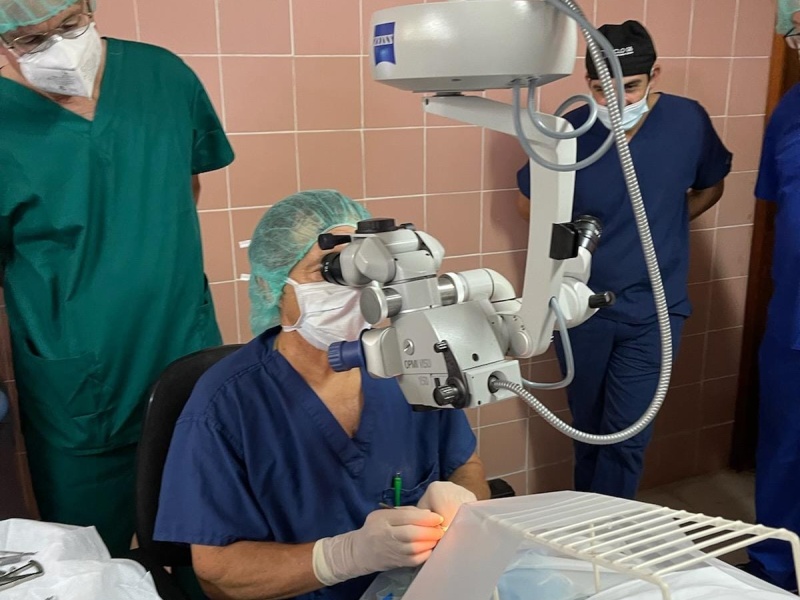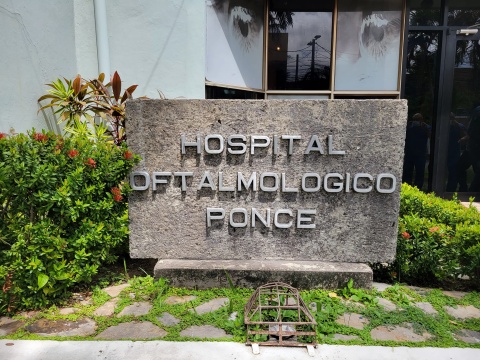
Four people in Central America received the gift of sight in September 2022 thanks to Iowa Lions Eye Bank and a University of Iowa alum.
Robert Weisenthal, MD, who completed a fellowship in cornea and external disease at Iowa in 1988, now practices in Syracuse, NY, but still requests ocular tissue from ILEB for many of his corneal transplants.
“I really like the service, and the tissue is always good,” Weisenthal says of ILEB.

“Now their son Diego has grown up and just joined them in practice,” Weisenthal says.
The Ponces screen patients at their clinic in the northeastern coastal city of La Ceiba before Weisenthal and his team arrive, and the Ponces follow up with them after they leave. Weisenthal will also visit with the patients during his subsequent visits.
“We call it the Syracuse South Practice,” Weisenthal says.
Before Weisenthal left for Honduras this past September, he requested four corneas from Iowa Lions Eye Bank so he could perform corneal transplants in the Ponces’ clinic. Honduras does not have an eye bank, nor does it have the infrastructure to support eye, organ and tissue donation.
“It’s very challenging to get corneal tissue down there, and usually the tissue they do get is old,” Weisenthal says.
Honduras also is the second-poorest country in the Western Hemisphere, and Weisenthal says the patients he sees are “the poorest of the poor.”
“I’ll try to schedule the surgeries on the first couple of days I’m there and be able to follow up with them throughout the week,” Weisenthal says. “We ship our own instruments and machines down there, bring down our own team of nurses and volunteers and translators, and take care of the patients in small groups.”
Weisenthal says he enjoys going on the mission trips for myriad reasons, and the patients are always grateful.
“Corneal transplant patients are friends for life,” he says.